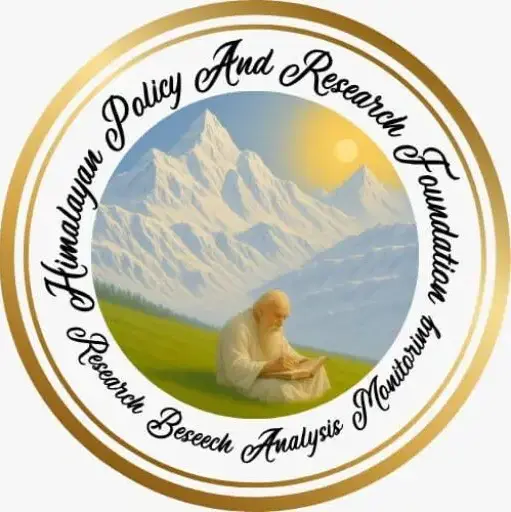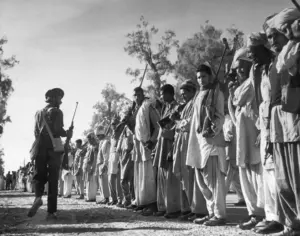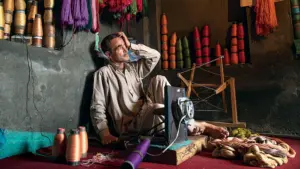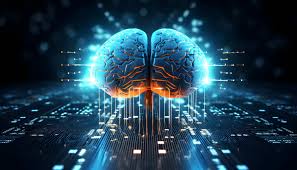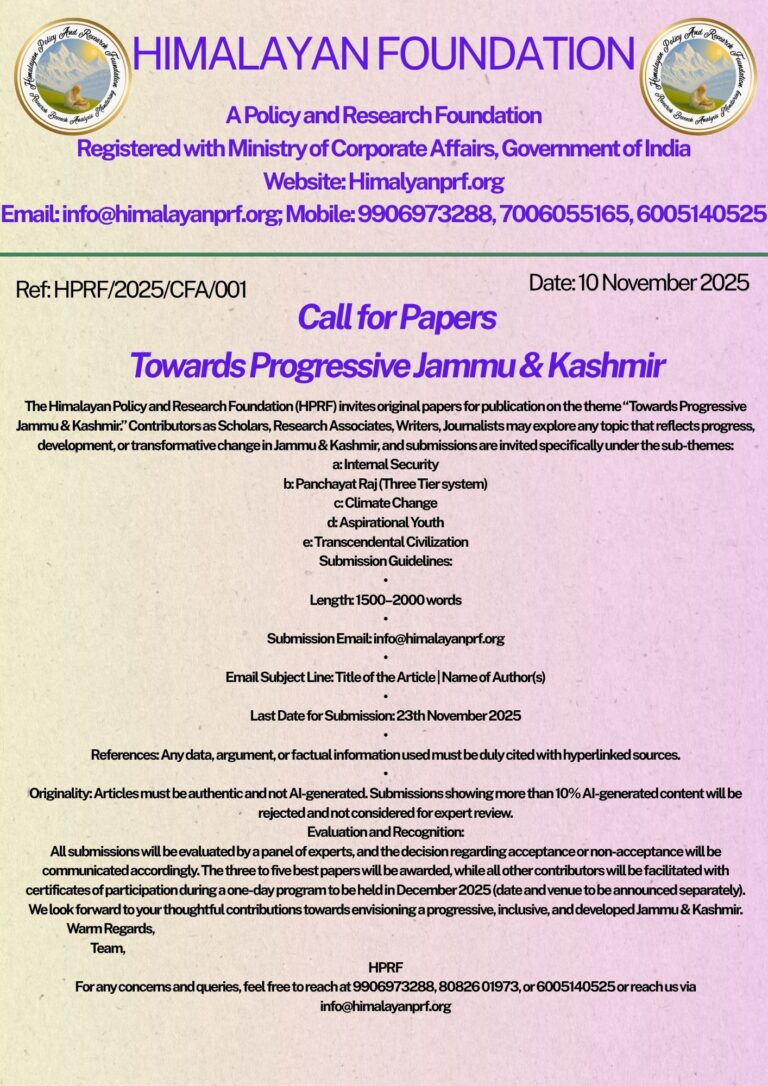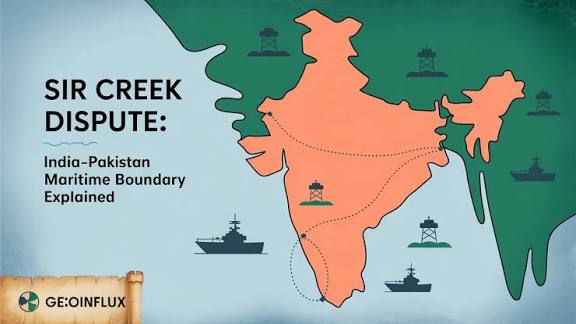By: Dr Mewrish Guru
Every once in a millennium, humanity crosses a threshold not merely of invention, but of self-perception. Fire gave us warmth, but it also birthed myth. The wheel moved bodies, but it also moved boundaries. Writing, electricity, and computation all shifted the locus of power—each not only solving problems but raising questions about what it means to be human. Today, we inhabit another such juncture: the rise of a kind of intelligence that does not feel, does not sleep, and does not err in the ways we do. It neither ages nor dreams. It reasons without remembering, and acts without ambition. And yet, it is already quietly transforming every layer of human civilization.
At the heart of the anxiety surrounding this transformation lies a fear—one that our own mythologies have prepared us for: that what we create might exceed us. But it is also possible that this new form of intelligence, far from erasing what is human, may in fact restore it—by unburdening us from tasks we are ill-equipped to handle alone and sharpening the moral and political choices that remain irrevocably ours.
Nowhere is this clearer than in our response to the climate crisis. For decades, we have known the outlines of catastrophe: rising seas, displaced populations, scorched earth. But our actions have lagged behind our knowledge. What the thinking machine now makes possible is not just surveillance of the planet’s wounds, but comprehension of their pace and pattern. In Brazil, deforestation of the Amazon has long been a crisis visible only when it is too late. But today, satellite-fed systems track forest cover with near real-time updates, detecting changes of a few hectares and alerting authorities before irreversible damage occurs. This is not surveillance—it is stewardship. A consciousness too vast and fast for human apprehension is now placed at our fingertips.
The same holds true in the realm of agriculture, where centuries of inherited wisdom are now enriched by insights gathered from soil sensors, seasonal pattern prediction, and moisture analytics. Consider India’s experiment with precision farming in Tamil Nadu: by integrating ground-level crop data with atmospheric patterns, farmers have increased yields while reducing the use of water and fertilizers. This is not the death of tradition—it is its maturation. A grandmother’s knowledge of monsoons now speaks to a constellation of satellites; intuition converses with probability.
Healthcare is yet another theatre where the stakes of intelligent systems are existential. One need not look to a dystopian future; the case is already unfolding. In Rwanda, where access to doctors remains uneven, systems deployed through drones and mobile diagnostics are now supporting nurses in remote districts. A device that reads a skin lesion, compares it across millions of medical records, and offers a probable diagnosis is not a machine usurping a doctor—it is a promise that the accident of geography will not decide who lives and who dies. Similarly, in Seoul, systems that scan radiology images have reduced diagnostic time by over 40%, allowing physicians to spend less time analyzing images and more time attending to patients. The work of compassion, ironically, is enabled by the machine that does not feel.
Disaster relief offers another compelling example. During the 2023 Türkiye–Syria earthquake, systems powered by large-scale geospatial computation mapped damage zones within hours, guiding first responders to the most affected areas. In a chaos of flattened buildings and collapsing infrastructure, it was not emotion but cold computation that saved the warm bodies trapped beneath the rubble. Such systems may not know the value of a human life—but they can act in ways that protect it.
One may object, with just cause, that these benefits are not neutral. They can be hoarded, misused, and weaponized. Indeed, the same logic that diagnoses cancer can also sort bodies at borders. The same algorithm that predicts hunger can also be used to manipulate political behavior. But that is not a flaw of the machine—it is a failure of our institutions. The moral weight of the outcome still rests with the human, not with the circuit. Ethics does not reside in the silicon—it resides in the structure of power within which these systems are embedded.
The question then is not whether these machines will replace us—they cannot. The real question is whether they will allow us to recover parts of our humanity that industrial modernity eroded. Consider the domain of labor. Industrialization turned humans into extensions of machines—repetitive, regimented, and disenchanted. The thinking machine, paradoxically, holds the potential to undo this legacy. By taking over mindless repetition, it may free labor to return to creativity, community, and care. The nurse need not spend her day filling forms. The teacher need not waste hours grading routine tests. The civil servant need not sort files. What emerges is not a loss of labor—but a reprioritization of its meaning.
One of the most promising frontiers lies beyond the Earth itself. In space, where no human foot may safely tread, machines probe surfaces, record vibrations, and decipher cosmic silence. NASA’s Perseverance rover, navigating the Martian landscape, drills into rocks to detect ancient signs of life. It does not know what life is—but it makes our search for life more precise. Similarly, data from deep-space observatories is now filtered through systems that detect anomalies in spectral readings—potentially pointing to planets that resemble Earth. In these acts of machine attention, our oldest longing—to know if we are alone—is given new tools.
These systems are also, increasingly, embedded in our public infrastructure. In cities like Helsinki, energy grids are dynamically managed to reduce consumption during peak hours—balancing demand with ethical distribution. Transport systems in Singapore use predictive inputs to reduce congestion, cut emissions, and allow elderly pedestrians more time at crosswalks. These are not miracles—they are choices made possible by cognition that processes complexity at a scale we cannot.
Yet none of this is inevitable. The promise of intelligence without flesh is not in its capacity to act alone—but in its capacity to act justly, when guided by norms. And this is where philosophy matters more than ever. We must resist both glorification and paranoia. These systems do not think—they compute. They do not imagine—they infer. They do not choose—they optimize. They do not rebel—they obey. Therefore, the task of setting direction, of deciding what is good, desirable, and worth preserving, remains forever ours.
The deepest danger is not that machines will become like humans—but that humans will forget how to be human. That we will begin to measure value only in what can be predicted. That we will mistake precision for wisdom, output for meaning. To resist that, we need not reject the machine. We must place it within a human framework: one that recognizes vulnerability, rewards doubt, and honors the sacredness of the unquantifiable.
And so, this new moment demands a new contract. Not just between machine and maker, but between society and its institutions. Transparency must become non-negotiable. Accountability must be embedded. Oversight must be public. For when a device makes a medical error, or when a predictive system unfairly denies someone a loan, the recourse must be human. Machines must be subject to justice, even if they cannot understand it.
What we are building is not an oracle. It is not a god. It is a tool—perhaps the most powerful tool we have ever made. But tools alone do not transform the world. Only a moral imagination can do that. The machine can calculate—but it cannot care. It can recommend—but it cannot remember a grandmother’s lullaby, or a protestor’s scream, or a poet’s silence. Only we can.
In the end, the promise of the thinking machine is not that it liberates us from thought—but that it makes better thought possible. It gives us time, perspective, and pattern. It reveals to us how much we do not know. And in doing so, it invites us not to surrender—but to become more deliberate, more just, and perhaps, more wise.
